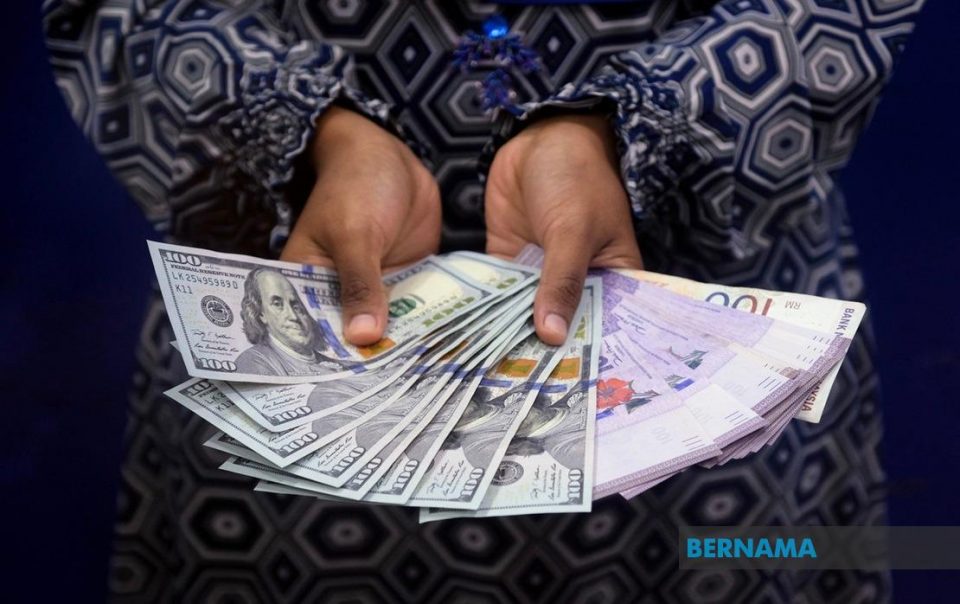(REUTERS) April 20 — The ringgit hit a near two-year low on Wednesday, dragged by strength in the US dollar, dim global growth prospects, and an overnight slump in oil prices, while other emerging Asian currencies trade mixed.
Most equities in the region firmed, following overnight gains on Wall Street.
The ringgit, resuming trade after a holiday, fell up to 0.8 per cent to its lowest since June 2020 as the greenback edged higher. It later pared some losses to trade 0.6 per cent lower, as crude prices rebounded.
“The sharp drop in oil prices in the past 24 hours has weighed on the ringgit,” Alvin Tan, the head of Asia FX strategy at RBC Capital Markets, said.
The International Monetary Fund (IMF) slashed on Tuesday its forecast for global economic growth by nearly a full percentage point, citing Russia’s war in Ukraine, and warned of an imminent threat from inflation to many countries.
The IMF’s move followed a similar announcement from the World Bank on Monday.
“IMF’s downgrade of global growth, risks of China slowdown amid extended lockdowns, decline in CNH overnight, sharper rise in UST (U.S. Treasury) yields and softer oil prices dampened MYR sentiments,” analysts at Maybank wrote.
Though China surprised markets by leaving its benchmark lending rates unchanged, emerging Asian stock markets tracked an overnight strength on Wall Street.
Investors also read into relatively dovish comments from two U.S. Federal Reserve officials, which eased nervousness around the Fed’s imminent policy tightening plans.
Stocks in Singapore extended gains to rise one per cent and Malaysia added roughly 0.8 per cent. Philippine shares advanced 1.3 per cent to gain for the fourth straight day, touching their highest level since April 7.
Malaysian stocks broke a three-day losing run, while Thai equities climbed for a second successive day.
Looking ahead, markets will eye remarks from Fed Chair Jerome Powell, European Central Bank President Christine Lagarde and Bank of England Governor Andrew Bailey on Thursday, on the state of the global economy.
Meanwhile, in bond markets, the yield on Malaysia’s 10-year benchmark hit its highest since October 2018, while that for Indonesia rose to its highest since September 2020.
Indonesia’s rupiah and stocks fell marginally, a day after the country’s central bank cut its 2022 economic growth outlook amid inflationary risks and geopolitical tensions but left interest rates at a record low. Read full story
Separately, Southeast Asia’s largest economy also recorded a $717.9 million budget surplus in the first quarter, as high commodity prices and an improving domestic economy boost revenue.
— Reuters





